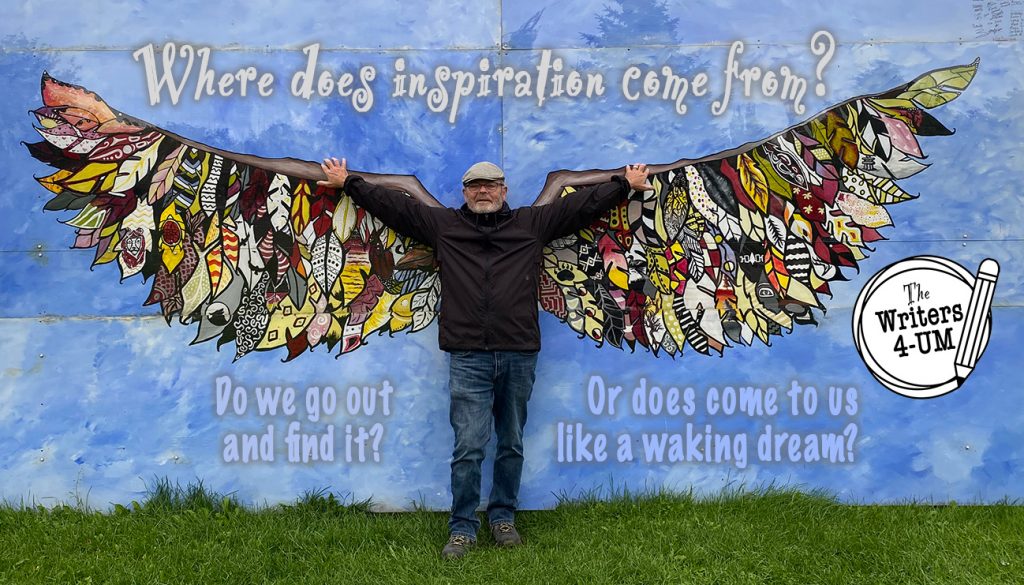
Inspiration can be shared. This mural, One Feather at a Time, was created by 20 students and staff from South Grenville District High School in Prescott, Ontario.
Inspiration: The Beginning, Middle, and The End
In the Beginning
“The idea that poetry comes from beyond oneself is vital… One doesn’t know what one’s doing and is inspired in that respect… it’s just about allowing a poem to come from wherever it comes from and getting it into the world.”
—Paul Muldoon, winner of the 2003 Pulitzer Prize for Moy Sand and Gravel
What does it mean ‘to be inspired’ as a writer or poet?
For me, entire novels sprout suddenly from the fecund soil of experience and imagination. That’s not to say they have revealed even a tiny fraction of what they are going to become, but they unfurl like flowers whose literary DNA infuses the creative process of telling from inception, every word along the way. I am startled and amazed at the things my characters do, and I know I am moving in the right direction when I laugh, or cheer, or moan at their behaviour.
In the Middle
If your idea of inspiration stops at wide-eyed wonder and shouts of Eureka, you will never succeed as a writer. Inspiration drives writers, poets, playwrights, and memoirists from word to word, page to page, episode to episode through a creative feat that can take years to work itself out. Inspiration dances and ballyhoos at the moment of inception, then puts its shoulder to the harness, quietly celebrating each laborious step along the way.
In the End
And when an author types ‘The End’ onto the last page of his manuscript, he’s really saying ‘The beginning’ in several essential ways. It’s time for him to begin a new work—to leave off editing, revising, proofing, and rewriting a story he knows inside-out and move on to another story. It’s not that the current work couldn’t be improved—the process of refining could go on forever. It’s just an admission that “I am done,” to quote Michelangelo from his Sistine Chapel scaffold.
It’s also time for a transition into a new creative phase for the work that’s just been declared completed. It takes most writers years, even decades, to realize that inspiration can’t end once a book has been printed and bound. Literature lives in the minds of readers—or audiences, to use a term more appropriate for our digital era. Books are like children. They have a life of their own once they’re fully fledged, but our responsibility for their success never wavers.
CraigSpenceWriter.ca